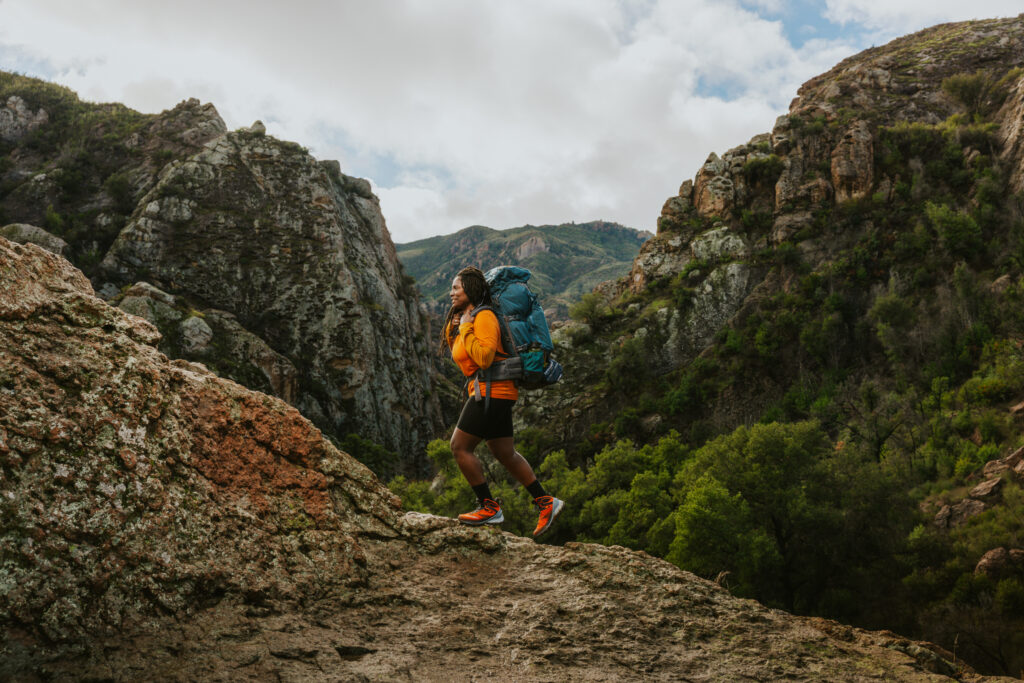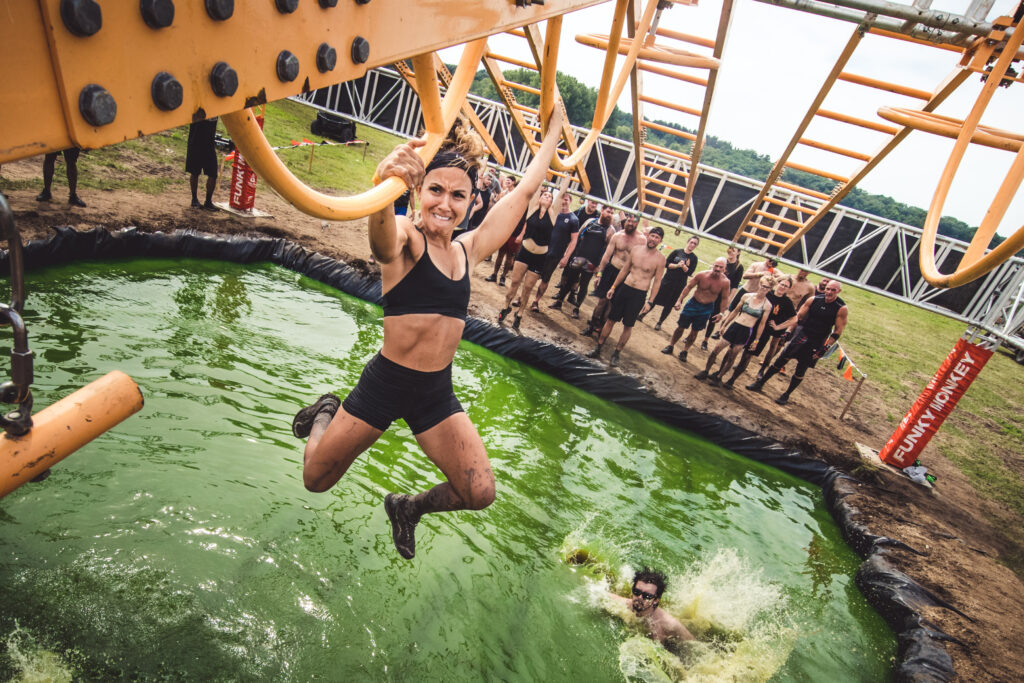upper body training 
The ability to lift and move your body weight is key during any Tough Mudder event. Every obstacle requires Mudders to use upper body strength to complete them. This is especially the case with Pyramid Scheme, Kong and Funky Monkey. In this upper body workout, all you’ll need is a pair of light dumbbells, a sturdy overhead structure, and about 30 minutes. Each exercise has a “Level 1” for beginner fitness enthusiasts and a “Level 2” for mud lovers looking to push their limits.
Tackle this four-move upper body circuit and you’ll be ready to move your body through space like only a Tough Mudder course demands.
DIRECTIONS: Perform these four exercises as a circuit, meaning do one set of the first exercise, then move onto the next exercise. Complete four rounds total, resting 60 seconds between exercises and 2 minutes between rounds.
1. Rotational Pushup
Reps: 5 each side
Muscles Worked: Shoulders, Triceps, Chest, Back, Core
Level 1: Standard Pushup
Level 2: Rotational Pushup
How to Do It: Complete the traditional pushup. As you return to the starting position, raise one hand off the ground rotate your torso, turning your body until it’s perpendicular to the floor. Look up towards your outstretched arm, which have the fingertips facing the ceiling. Return the free arm to the ground. That’s one rep on one side. Alternate sides.

2. Dumbbell Row
Reps: 15
Muscles Worked: upper, middle and lower back, grip strength, biceps
Level 1: Dumbbell Row
How to Do It: Stand holding a dumbbell in each hand with knees bent with palms facing each other (neutral grip). Your body should be leaning forward slightly with the chest out and back straight. Squeeze your shoulder blades together as you bring the weights towards your rib cage. Pause for 2 seconds while elbows are fully back then return weight to the starting position.
Level 2: Dumbbell Row with Grip Rotation
Start the row with an overhand grip and as you do the rep, rotate your hands to an underhand grip so that when your elbows are all the way, you end in the underhand grip. Return the dumbbells to starting position, again turning the wrists so they go back to the overhand grip you started with.

3. Pullup
Reps: 10
Muscles Worked: upper and middle back, shoulders, biceps, triceps, core
Level 1: Chair Pullup
How to Do It: For people who can’t do strict pull-ups, stand on a sturdy platform or chair as you grip the bar with an overhand (closed) grip. Squeeze your shoulder blades together and pull yourself up until the chin is over the bar. Use the chair as necessary to get your chin over the bar. Another way to modify the pull-up is to use a strength resistance band. Loop one end of the band over the top of the pull-up bar and pull it through the space to secure it to the bar. Step on the band, into the loop your anchor created, and perform pull-ups.

Level 2: Pullup with Alternating Grip
Once you can one set of 10-12 assisted pullups try a regular pullup without the chair. If you can do 3 sets of 10-15 reps, use a baseball bat grip on the pullup which means you stand under the bar, perpendicular to it, and hold it so one hand is in front of the other. Pull yourself up so your head is above the bar on one side, return back to the starting position, then raise your head up on the side of the bar. That’s one rep each side.
4. Dumbbell Shoulder Press
Reps: 15
Muscles Worked: shoulders, upper back
Level 1: DB Shoulder Press
How to Do It: Stand holding one dumbbell in each hand using an overhand grip with feet hip-width apart with elbows at a 90-degree angle. Using just your shoulders, drive the weights vertically until your arms are full extended. Return the weights back down to above your chest. That’s one rep.

Level 2: Dumbbell Twisting Shoulder Press
How to Do It: Standing holding a dumbbell in each hand using an overhand grip but have your palms face you and the back of your hands facing outwards. Press the dumbbells above your head, turning your wrists so your palms face away from you as you extend your arms overhead. The end of the press will look the same as level 1. As you return the weights back down to your chest level, rotate wrists again so your palms face you. This increases the activation of the deltoids, resulting in more endurance and stability for obstacles like Berlin Walls and Block Ness Monster, where you need upper body strength to continue the course.



